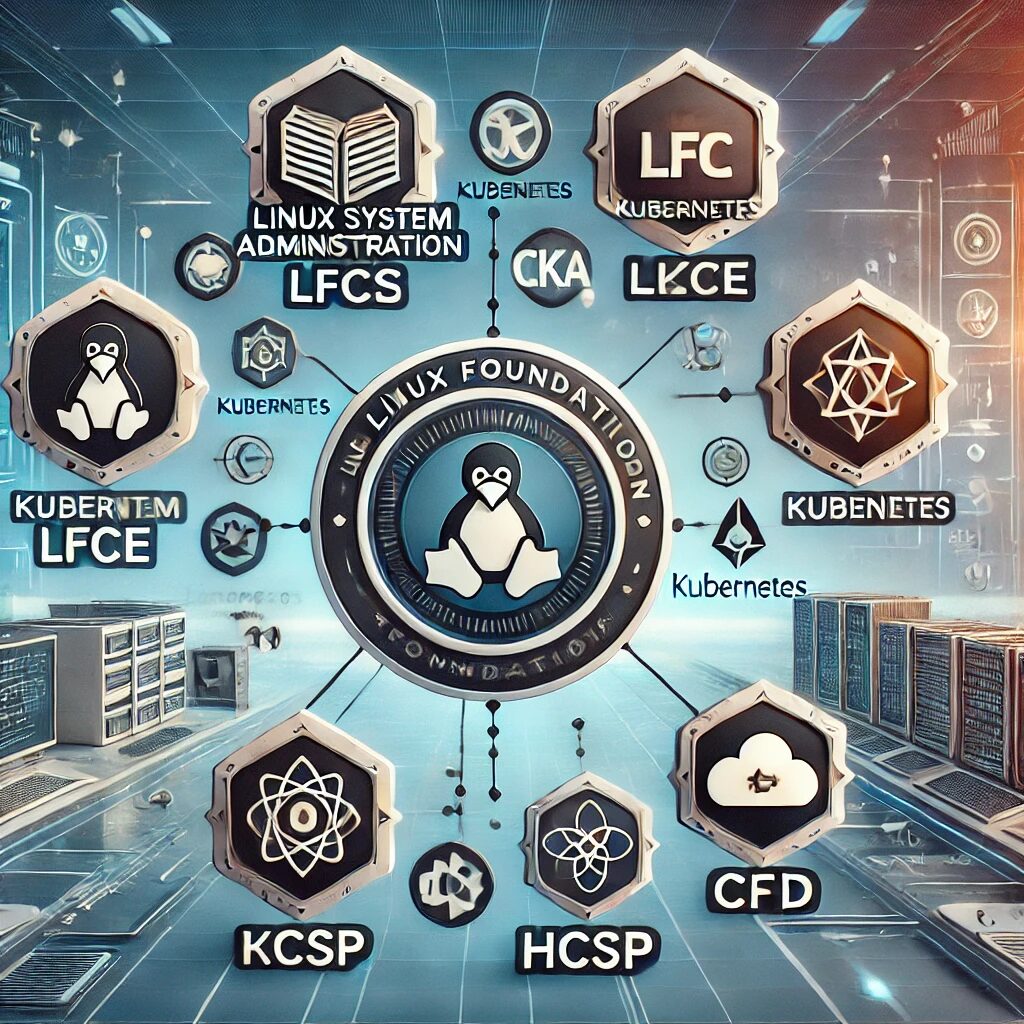The Linux Foundation, an affiliate of LINUXexperts.org, offers a range of certifications that are highly regarded in the IT industry. These certifications validate your skills and knowledge in various aspects of Linux and open-source technologies. This article will explore the topics covered by these certifications, how they compare to those from other providers, their worth, and how to select the right certification path for you.
Certifications Offered by The Linux Foundation
1. Linux Foundation Certified System Administrator (LFCS)
- Topics Covered: Basic to intermediate Linux system administration tasks, such as system configuration, management of users and groups, system maintenance, and basic networking.
- Ideal For: Beginners or those looking to solidify their foundational Linux skills.
2. Linux Foundation Certified Engineer (LFCE)
- Topics Covered: Advanced Linux system administration, including network administration, service configuration, system design, and security.
- Ideal For: Experienced Linux administrators who want to demonstrate their expertise.
3. Kubernetes Certifications
- Certified Kubernetes Administrator (CKA): Focuses on skills required to be a successful Kubernetes administrator.
- Certified Kubernetes Application Developer (CKAD): Emphasizes application development and management in Kubernetes.
- Certified Kubernetes Security Specialist (CKS): Covers security best practices for Kubernetes.
4. Hyperledger Certified Service Provider (HCSP)
- Topics Covered: Blockchain technologies, specifically the Hyperledger framework.
- Ideal For: Professionals working with blockchain and Hyperledger.
5. Cloud Foundry Certified Developer (CFCD)
- Topics Covered: Development and deployment of applications on the Cloud Foundry platform.
- Ideal For: Developers working with Cloud Foundry.
Comparing The Linux Foundation Certifications to Other Providers
When comparing The Linux Foundation’s certifications to those from other providers like CompTIA, Red Hat, and AWS, several points stand out:
- Specialization in Open Source: The Linux Foundation’s certifications focus heavily on open-source technologies, making them unique and highly specialized.
- Hands-On Exams: Unlike many certifications that rely on multiple-choice questions, The Linux Foundation emphasizes practical, hands-on exams.
- Industry Recognition: Certifications from The Linux Foundation are widely recognized and respected in the industry, particularly in roles that require deep knowledge of Linux and open-source tools.
Are They Worth the Expense?
Investing in certifications from The Linux Foundation can be highly rewarding:
- Career Advancement: Holding a certification can significantly enhance your job prospects and career growth.
- Skill Validation: These certifications validate your skills and knowledge, making you more competitive in the job market.
- Industry Trends: As the demand for Linux and open-source skills continues to grow, these certifications ensure you stay relevant.
However, the cost of certification can be a consideration. Weigh the potential salary increase and career opportunities against the expense to determine if it’s a worthwhile investment for you.
Selecting the Right Certification Path
Choosing the right certification depends on your career goals and current skill level:
- Assess Your Current Skills: Determine whether you need foundational knowledge (LFCS) or if you’re ready for advanced topics (LFCE).
- Career Goals: If your goal is to work with Kubernetes, opt for CKA, CKAD, or CKS. If blockchain interests you, HCSP might be the best fit.
- Industry Requirements: Research the certifications that are in demand in your desired job market or industry.
Conclusion
Certifications from The Linux Foundation are a valuable asset for IT professionals looking to advance their careers in Linux and open-source technologies. They offer a practical, hands-on approach to learning and are highly respected in the industry. By carefully assessing your skills and career goals, you can select the certification path that best aligns with your professional aspirations.
For more information on certifications from The Linux Foundation, visit their official page.




